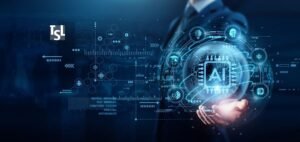Throughout history, influential educators have done more than instruct—they have transformed the very way we think about teaching and learning. From pioneering new pedagogical philosophies to founding globally adopted educational models, these individuals have reshaped classrooms and inspired generations of learners and teachers alike. Their ideas persist not as static doctrines, but as evolving frameworks that adapt to new contexts and challenges.
This article highlights how observing modern interpretations, practicing reflection, leveraging digital tools, and applying educational philosophies in innovative ways can help us carry forward the transformative spirit of these trailblazers.
Observing Modern Interpretations and Adaptations
Influential educators often leave behind more than just their teachings they ignite movements, shape institutions, and inspire educational models that endure long after their time. The Montessori method, for example, has found a place in classrooms worldwide, adapted to suit different cultural and societal contexts while remaining rooted in its original philosophy. Similarly, the Reggio Emilia approach to early childhood education continues to evolve, as educators around the globe reinterpret its principles to align with local needs and emerging pedagogical insights.
Engaging with how contemporary educators adapt these foundational philosophies offers a powerful opportunity for learning. Observing modern implementations through lectures, workshops, or school visits—demonstrates how enduring educational ideas are reimagined to suit present-day challenges, technological advancements, and diverse learner profiles. This process not only brings theory into practice but also highlights the distinction between universal principles and practices tailored to specific contexts, a crucial perspective for anyone aiming to apply educational models effectively.
Engaging in Reflective Practice
Genuine learning from influential educators goes beyond simply absorbing their ideas—it calls for thoughtful reflection and active engagement. Reflective practice enables learners to connect educational theories and methods to their own experiences, objectives, and challenges. For educators, this may involve experimenting with a teaching strategy in the classroom and evaluating its effectiveness. For students, it might mean rethinking their study habits or problem-solving approaches based on newly acquired educational perspectives.
This reflective process also invites critical analysis, an essential component of meaningful learning. Not every educational philosophy or method fits all contexts, and recognizing the limitations or cultural biases in an educator’s work is part of a responsible and informed approach. For example, while Piaget’s contributions to developmental psychology are widely respected, critiques have pointed out that his theories may not fully account for cultural and individual differences. By engaging critically, learners ensure their application of educational ideas remains flexible, inclusive, and contextually relevant.
Integrating Technology and Media Resources
In today’s digital era, the availability of educational content has expanded significantly, making technology a valuable asset in engaging with the work of influential educators. Multimedia resources such as video lectures, podcasts, webinars, and interactive courses provide dynamic and accessible ways to explore educational theories and practices. These formats often feature interpretations from contemporary scholars, visual representations of complex concepts, and insights from practitioners who have implemented these ideas in diverse educational contexts.
Additionally, many digital learning platforms and management systems integrate pedagogical frameworks rooted in the work of renowned educators. For example, platforms designed around constructivist principles drawing on the theories of Piaget and Vygotsky—enable users to experience these educational philosophies in practice. Utilizing such resources not only deepens one’s theoretical understanding but also exemplifies the learner-centered approaches that many of these educators championed, reinforcing their relevance in modern educational environments.
Applying and Innovating with Core Ideas
The true objective of learning from influential educators lies not in imitation, but in thoughtful innovation. Once the core principles and methodologies of an educator are understood, the most valuable step is to adapt and apply these insights to contemporary challenges and unique educational contexts. Whether it’s developing a curriculum, guiding a peer, or advancing personal academic goals, the ability to convert theoretical knowledge into practical, meaningful action represents the highest level of engagement with an educator’s legacy.
What distinguished many influential educators was their willingness to question conventions and pioneer new directions in teaching and learning. Embracing their work involves more than understanding their ideas—it requires carrying forward their spirit of curiosity and transformation. By experimenting with approaches, refining practices, and creatively responding to current educational needs, learners actively participate in the continuing advancement of education and its impact on society.
Conclusion
Learning from influential educators is a dynamic process that extends far beyond the replication of their methods. It involves deeply engaging with their philosophies, critically reflecting on their relevance, and adapting their insights to contemporary educational landscapes. By observing how their ideas are interpreted today, integrating technology to access and apply their work, and ultimately using their principles as a foundation for innovation, we honor their legacy in meaningful ways. The true impact of these educators lies not only in what they taught but in how their teachings continue to inspire critical inquiry, creative adaptation, and lasting transformation in education across the world.
Read More Article – Click Here


